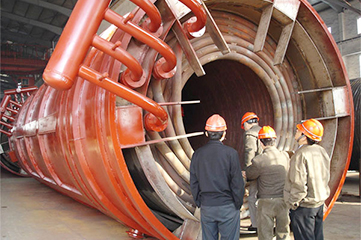thermal oil heater product
Understanding Thermal Oil Heaters An Essential Component for Industrial Heating
In the world of industrial heating, thermal oil heaters have emerged as a reliable solution for many applications. These heaters utilize thermal oils as a heat transfer medium, providing efficient heat transfer at higher temperatures than traditional steam or water heating systems. This article delves into the workings, advantages, applications, and considerations for thermal oil heaters.
How Thermal Oil Heaters Work
Thermal oil heaters operate on a relatively straightforward principle. Instead of water, they use specialized thermal oils, which can withstand high temperatures without becoming gaseous. The process begins with the heating of the thermal oil in a closed-loop system. A burner, often fueled by gas, oil, or electricity, heats the oil in a thermal oil furnace. This heated oil then circulates through a network of pipes to various heat exchangers or industrial processes where the heat is needed.
What sets thermal oil apart is its ability to maintain high temperatures—often exceeding 300°C (572°F)—without the risks associated with steam pressure systems. Because the system operates at atmospheric pressure, it enhances safety and reduces the risk of leaks and failures associated with pressurized systems.
Key Advantages of Thermal Oil Heaters
1. High Efficiency One of the primary benefits of thermal oil heaters is their efficiency. They can deliver higher energy efficiencies than traditional boilers, leading to reduced energy costs over time.
2. Versatile Temperature Control Thermal oil systems provide precise temperature control, which is crucial for many industrial applications. Users can easily adjust temperatures to suit specific process requirements.
3. Safety Operating at lower pressures reduces risks associated with high-pressure steam systems. Additionally, thermal oils are specifically designed to handle high temperatures without degrading or vaporizing, minimizing the risk of accidents.
4. Cost-Effectiveness Although the initial investment might be higher than conventional heating systems, thermal oil heaters often prove to be more cost-effective in the long run due to lower operational and maintenance costs.
5. Wide Application Range Thermal oil heaters can be used in various industries, including food processing, plastics, chemicals, and pharmaceuticals. Their ability to provide consistent heat makes them suitable for processes like drying, melting, and distillation.
Applications of Thermal Oil Heaters
Thermal oil heaters have found applications in numerous industries
. Some common uses includethermal oil heater product

- Food Processing In the food industry, thermal oil is used for processes that require precise temperature management, such as frying, cooking, or drying food products.
- Oil and Gas These heaters are often employed in the extraction and refining processes, where they deliver consistent heat required for the separation and processing of petroleum products.
- Chemical Manufacturing Many chemical processes require specific temperature settings that thermal oil heaters can easily provide, making them crucial in the production of various chemicals.
- Plastics and Rubber Thermal oil heaters are often used in the manufacture of plastics and rubber products, where heat is needed for molding and shaping.
Considerations When Choosing Thermal Oil Heaters
When selecting a thermal oil heater, several factors should be considered
1. Type of Thermal Oil Different thermal oils have varying thermal stability, boiling points, and viscosity. Choosing the right oil is critical for optimal performance and longevity.
2. Capacity Requirements It's essential to evaluate the heating requirements of your processes to select a unit that meets your demands efficiently.
3. System Design and Layout The design of the heating system and the layout of the heat exchangers must be planned meticulously to ensure efficient heat transfer and circulation.
4. Regulatory Compliance Adhering to local safety and environmental regulations is crucial. It's important to partner with manufacturers who can ensure compliance.
5. Maintenance and Support Finally, consider the availability of maintenance services and technical support for the system. Regular maintenance is essential to prolong the life and efficiency of thermal oil heaters.
Conclusion
Thermal oil heaters represent an innovative and effective solution for industrial heating requirements. Their ability to provide high efficiencies, safety, and versatility makes them indispensable in many industries today. Understanding their working principles, advantages, and applications will help industries leverage their benefits for optimal performance and cost-effectiveness in heating processes.
-
Top Electric Steam Boiler Manufacturers - High Efficiency SolutionsNewsJul.30,2025
-
Top Electric Steam Boiler Manufacturers – Efficient Industrial SolutionsNewsJul.29,2025
-
Top Electric Steam Boiler Manufacturers | Reliable Industrial SolutionsNewsJul.29,2025
-
OEM Steam Boiler Solutions for Custom Needs | High Efficiency & VersatilityNewsJul.29,2025
-
High-Efficiency Thermal Oil Boiler for Industrial Heating SolutionsNewsJul.29,2025
-
Top Electric Steam Boiler Manufacturers for Industrial EfficiencyNewsJul.28,2025

